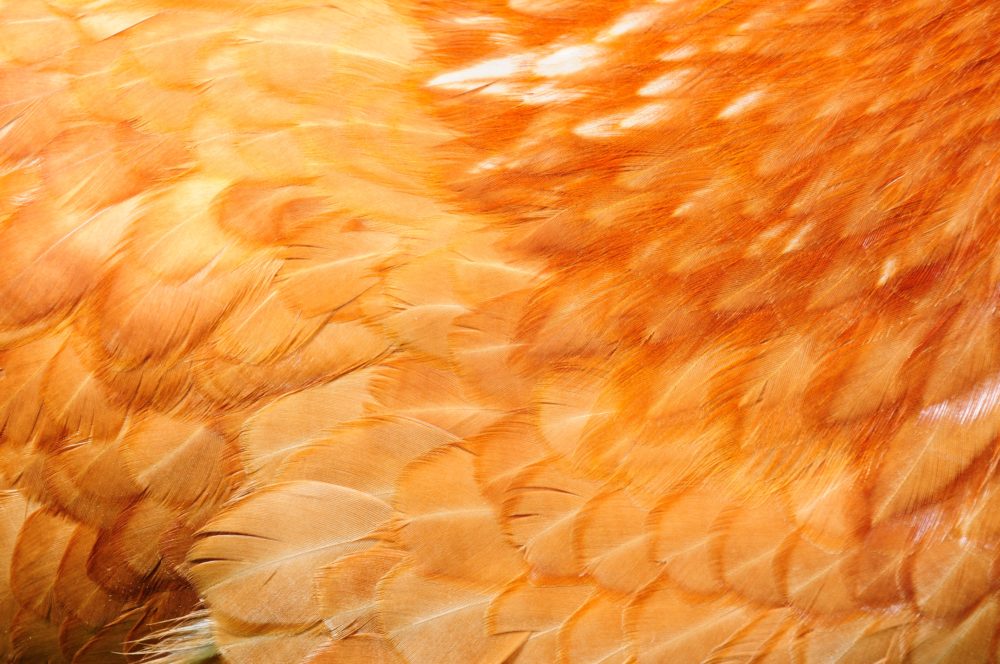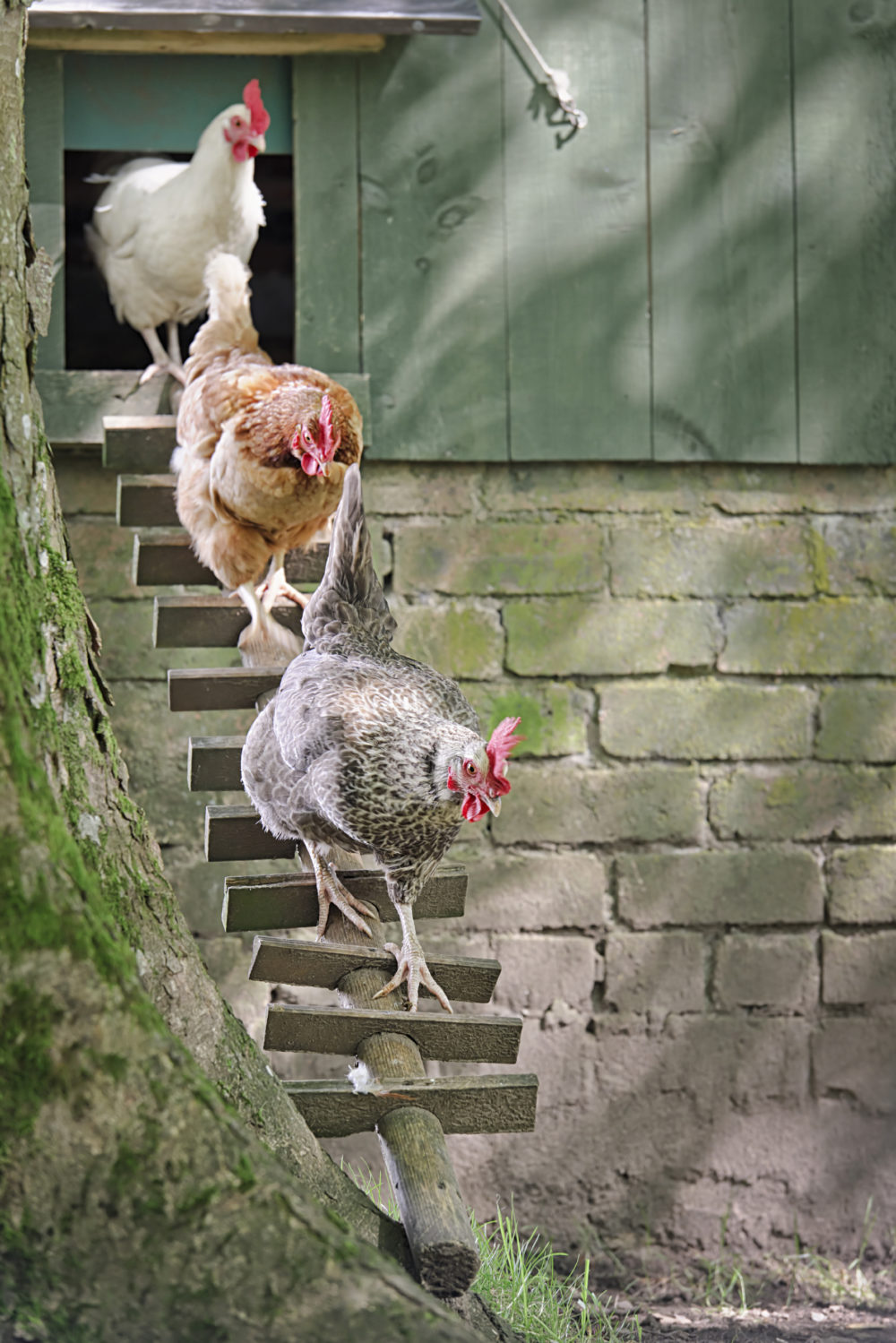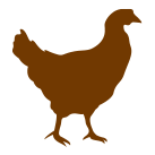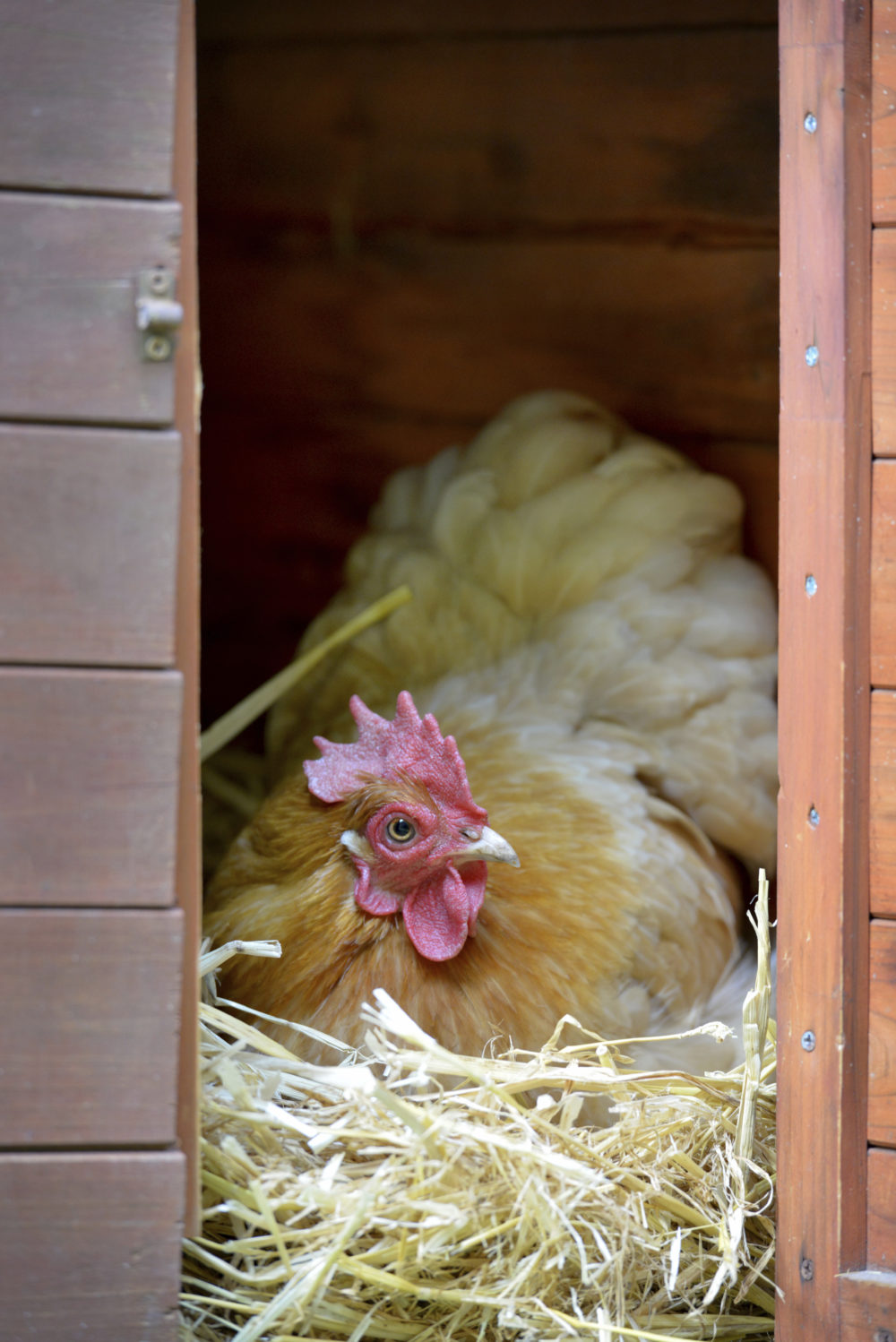Rain, Wind and Cold:
Caring for Your Chickens During Winter
Chilly nights, crisp mornings and afternoon showers – winter is definitely in full swing. While the wind and rain can be hard on your chickens, just like the natural world responds to the wetter weather with new forage, flowers and foliage, your chickens use winter as a chance to reset and prepare for another season of egg laying once the warmer weather returns.
Although chickens have their origins in warmer climates, they are quite capable of dealing with winter weather with a bit of assistance from us. Knowing how to work with your flock’s natural biology and behaviours can help them make it through the winter in good health. There are a number of things you can do to keep your feathered friends in great shape during the colder weather, so they can make the most of spring when it (finally) arrives.
Healthy Feathers, Whatever the Weather

Adult chickens can regulate their own body temperature quite well, as long as they’re not stressed or sick. They’re most comfortable between 18-26 degrees Celsius and up to 40% humidity – outside these conditions, their bodies will begin to adapt in different ways, and their behaviour may change to cope.
The most important way your chooks stay warm in winter is with their feathers. Chicken feathers are perfectly designed to keep out the cold and the rain, thanks to their unique structure and arrangement. But if they’re not kept in good condition – or if they get ruffled by strong winds – they can lose these properties very easily. Wind and rain can cause a chicken’s feathers to become waterlogged, causing the cold to penetrate to the skin and making it difficult to maintain body temperature (like wearing wet clothes on a cold day). This is why it’s really important for their feathers to stay as clean and dry as possible. Pay especially close attention at the start of winter, when your birds may still be regrowing their feathers after moulting in summer/autumn. New feathers take about six weeks to grow back fully, with most of this growth happening the first three weeks.
But What About Frost and Extreme Cold?
It’s natural to be concerned about your chickens when you see ice in the morning! Birds generally deal with the cold very well, provided they stay dry and have adequate shelter. Their combs (useful for keeping cool in summer) can be vulnerable to the cold in winter, and you may notice your chooks tucking their heads under their wings to protect them. This is normal behaviour, and you shouldn’t need to worry about frostbite except in the most extreme cold weather.
Good Housekeeping
Shelter from the weather is one of the most important things to provide for your chickens in winter. A combination of natural shelter (e.g. vegetation) and artificial shelter (e.g. the coop) will help to ensure your chickens feel safe and give them somewhere to stay warm during windy or rainy weather.

Pay extra attention to cleanliness and hygiene during winter, and take note of which direction the weather normally hits your coop. Try to imagine what it will be like when they’re all in there at the same time taking shelter, possibly feeling a bit scared and a bit cranky. Make sure they have enough clean, dry nesting boxes and plenty of room for their usual outside behaviours, and that they’re not going to be crowding around water or feed areas. Be on the lookout for any cold spots as well, as your chooks will avoid them during winter, reducing the amount of usable space.
Ventilation is another important thing to consider, and it’s something simple you can regulate to help your chickens stay healthy. In the warmer months, a more open configuration in your coop allows fresh air to circulate and keeps it cool. In winter, it’s a good idea to adjust ventilation to maintain air flow but keep the wind out, especially as the temperature begins to drop at night.
Winter Coop Maintenance Checklist:
- Check for leaks or holes in the structure
- Maintain adequate ventilation but no direct wind channels
- Make sure there’s plenty of good, clean, fresh bedding material
- Keep the coop clean and as dry as possible – wet litter build-up can cause elevated ammonia levels
- Ensure drinkers are in good order and off the floor
- Reduce mud around the coop and in high traffic areas (you can throw down some woodchips as a temporary solution).
Warning Signs That You Need to do Some Emergency Coop Maintenance Include:
- Constantly wet or muddy feet
- Pecking or bullying – chickens will behave badly when they feel unsafe or when they have to compete for resources like food, water or nesting space
- A smelly coop – especially a sharp ammonia smell
- Persistent muddy areas, particularly around entry/exit points
- Waterlogged feathers
Nutrition
Your chickens will require different nutrition during winter, when they won’t be able to rely on consistent outdoor foraging as much. They’ll also be getting ready for spring flush, when their bodies will be ramping up for optimal egg production. Make sure they’re getting a quality feed, appropriate for their stage of development. A commercial, formulated feed with a high protein content will help them meet their changing energy and nutritional needs during this period.
Water
Finally, ensure your birds have enough water to stay hydrated. Water is the number one nutrient for your chickens at all times, even when the weather is cooler. Make sure your drinkers are off the ground to avoid them getting spilled or walked in, and check that they’re well-stocked and working properly.
-Barastoc Poultry


